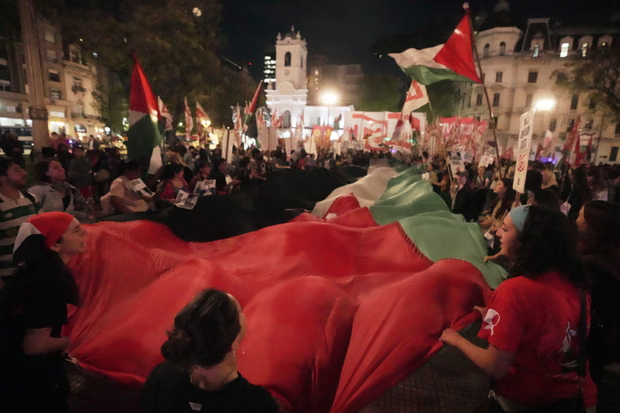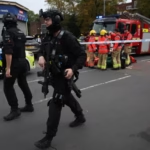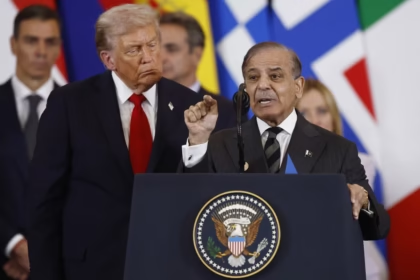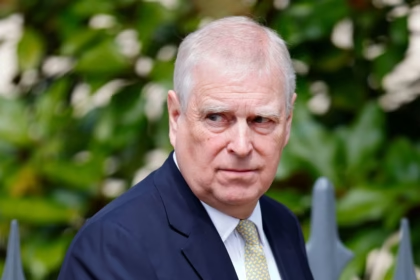Israel’s naval forces recently intercepted a pro-Palestinian flotilla bound for Gaza, touching off a wave of international protests, diplomatic clashes, and calls for solidarity strikes. The flotilla, known as the Global Sumud Mission, was carrying activists, lawmakers, legal experts, and humanitarian supplies. The confrontation has escalated tensions in an already volatile war zone, drawing condemnation from governments, union leaders, and civil society across Europe, the Middle East, and beyond.
The Interception and Immediate Aftermath
The flotilla, consisting of over 40 civilian vessels and carrying around 500 participants—including high-profile international figures such as climate activist Greta Thunberg—was intercepted by Israeli navy ships approximately 75 miles from Gaza’s coastal waters. Israel had warned the fleet to change its course, claiming it was entering an active combat zone, and offered to provide aid through designated safe channels rather than via the flotilla mission.
Israeli forces boarded the vessels, detained many of the activists on board, and seized control of the boats. Israeli officials characterized the mission as a public relations stunt and denied any intent to harm activists. However, they defended the interception on security grounds and insisted that it was necessary to prevent the introduction of weapons or militant activity into Gaza.
The move triggered immediate backlash. Protesters in cities across Europe and the Americas rallied in support of the flotilla, while governments condemned the raid and, in some cases, expelled Israeli diplomats in protest.
Massive Protests Across the Globe
In Italy, where pro-Palestinian sentiment has been strong in recent months, the reaction was swift and forceful. Thousands of protestors flooded city squares in Rome, Milan, Naples, and other locales. In Rome alone, estimates placed the numbers as high as 10,000 demonstrators chanting slogans like “Free Palestine” and demanding prime ministerial accountability. The CGIL, Italy’s largest labor union, joined the outcry by calling for a general strike, and smaller unions called for a shutdown of port operations, particularly targeting vessels tied to Israel.
In Germany, protests were staged in Berlin; in Brussels, activists gathered outside EU institutions; in Greece and Spain, rallies took place in major cities; and in Buenos Aires, demonstrators marched in solidarity. Spanish and Irish governments urged Israel to ensure the safety of detained activists, and criticism was particularly sharp in nations with citizens aboard the flotilla.
Diplomatic Fallout and Expulsions
In response to the interception, several countries moved to take formal diplomatic steps. Colombia’s president, Gustavo Petro, ordered the expulsion of all remaining Israeli diplomats, branding the raid an “international crime” and accusing Israel of violent aggression. Brazil and Mexico also publicly demanded that detained activists be released and reassured their citizenry that authorities would pressure Israel regarding rights protections.
Turkey’s foreign ministry denounced Israel’s actions as “terrorist aggression,” warning that targeting civilian vessels sets a dangerous precedent. Malaysia’s Prime Minister Anwar Ibrahim objected to the detention of Malaysians aboard the flotilla, accusing Israel of intimidation and pledging to pursue accountability through international legal channels.
Even nations less directly involved voiced concerns. Ireland’s foreign minister described the flotilla as a peaceful mission aimed at highlighting Gaza’s humanitarian crisis and criticized Israel’s approach. Political figures and civil society in numerous nations called for sanctions, legal investigations, and global awareness campaigns to hold Israel accountable.
Calls for Strikes and Labor Action
In Italy, the response escalated beyond protest. Union leaders called for full mobilization: port workers threatened to block ships, dock operations were limited, and metro closures were ordered in affected cities. The labor movement’s involvement marked a new dimension in solidarity actions, as workers in one of Europe’s key maritime hubs refused to service ships tied to Israel.
Outside Italy, labor federations and rights groups in other countries hinted at coordinated support actions: work slowdowns, stoppages at ports, and public demonstrations to force governments to take diplomatic steps or economic responses.
The Geopolitical Stakes
The interception signals deepening international frustration with the Israeli-Palestinian conflict and growing pressure on Israel from allied nations. It also underscores how the Gaza war continues to reverberate far beyond its borders, mobilizing not only activists but entire sectors of civil society and state actors.
From Israel’s perspective, the flotilla posed a challenge to its security narrative: allowing civilian vessels near the blockaded coastline risks infiltration or smuggling. From critics’ perspectives, the interception underscores what they argue is Israel’s disproportionate use of force and determined enforcement of a maritime blockade that many see as exacerbating Gaza’s humanitarian crisis.
What Happens Next
The fate of the detained activists remains unclear. Some are being held at naval or military facilities for questioning, while Israel has not yet announced plans for formal trials or deportations. Many governments have demanded their immediate release and safe repatriation.
Diplomatic relations could suffer further disruptions if Israel continues to detain foreign nationals or refuses to issue apologies. Global civil society may ratchet up pressure with more protests and economic sanctions. The intersection of labor movements and political action may intensify resistance beyond traditional diplomatic channels.
Moreover, the interception may accelerate calls for independent investigations into Israeli blockade practices, naval enforcement, and compliance with international maritime law. The UN, rights organizations, and human rights bodies will likely play a prominent role in monitoring developments.
For now, the flotilla raid stands as a flashpoint—fueling global solidarity for Palestinians and raising fundamental questions about maritime jurisdiction, military overreach, and the rights of humanitarian missions in conflict zones. How governments choose to respond—or remain silent—could shape the trajectory of Israel’s international standing and the global balance in the Middle East struggle.











